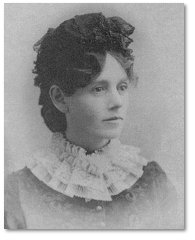A Quote by Thornton T. Munger
The habit of saving is itself an education; it fosters every virtue, teaches self-denial, cultivates the sense of order, trains to forethought, and so broadens the mind.
Related Quotes
If there be an order in which the human race has mastered its various kinds of knowledge, there will arise in every child an aptitude to acquire these kinds of knowledge in the same order. So that even were the order intrinsically indifferent, it would facilitate education to lead the individual mind through the steps traversed by the general mind. But the order is not intrinsically indifferent; and hence the fundamental reason why education should be a repetition of civilization in little.
The mind commands the body and is instantly obeyed. The mind commands itself and meets resistance. The mind commands the hand to move, and it so easy that one hardly distinguishes the order from its execution. Yet mind is mind and hand is body. The mind orders the mind to will. The recipient of the order is itself, yet it does not perform it.
Lent is a fitting time for self-denial; we would do well to ask ourselves what we can give up in order to help and enrich others by our own poverty. Let us not forget that real poverty hurts: no self-denial is real without this dimension of penance. I distrust a charity that costs nothing and does not hurt.
Virtue is the panacea for both body and mind. The virtuous person can be both healthy and happy. How is virtue to be cultivated? How can it express itself in daily practice? Through service to living beings, through seva. Virtue must flow through the triple channel of love, mercy and detachment, in order to feed the roots of seva.
The very act of faith by which we receive Christ is an act of the utter renunciation of self, and all its works, as a ground of salvation. It is really a denial of self, and a grounding of its arms in the last citadel into which it can be driven, and is, in its principle, inclusive of every subsequent act of self-denial by which sin is forsaken or overcome.
Slavery naturally tends to destroy all sense of justice and equity. It puffs up the mind with pride: teaches youth a habit of looking down upon their fellow creatures with contempt, esteeming them as dogs or devils, and imagining themselves beings of superior dignity and importance, to whom all are indebted. This banishes the idea, and unqualifies the mind for the practice of common justice.































